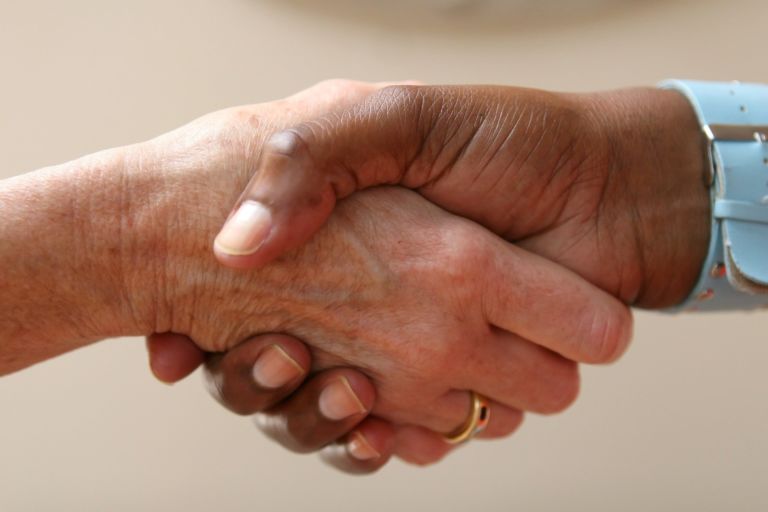Public officials at all levels are pleading with consumers not to hoard basic household necessities like toilet paper, paper towels, cleaning, and sanitizing products, or groceries. There are no problems with the supply chains for these products, and shelves will remain stocked if people simply don’t purchase more than they need, accumulating large stashes in their homes. And with widespread hoarding comes shortages and empty shelves, which then generate more hoarding.
In an attempt to explain the phenomenon that we are now experiencing, Bruce Conn, a psychotherapist from Coliseum Medical Center in Georgia, states that “it’s an easy and cheap response…I can get toilet paper. It’s not a high-risk investment…and it’s an easy thing to do.” He also noted that, at least in the current situation related to the COVID-19 virus, that it’s “irrational.” His direct message: “don’t hoard.”
Interestingly, Conn’s conclusion – that people are hoarding because it’s an “easy and cheap response” – mirrors the arguments of economists. In the language of economics, if the costs of hoarding, i.e., buying much more than you need and storing it away, are low relative to the perceived benefits, then people will hoard. State laws that prevent so-called price gouging, including North Carolina’s law, are keeping the costs of hoarding artificially low. As a result, they are subsidizing behavior that is clearly not in the interest of the greater good.
It’s important to note that the term “price gouging” has no meaningful definition outside of whatever definition politicians ascribe to it. The expression can’t even be found in a typical economics textbook on price theory. In reality, what is being talked about is a normal market response, i.e., an increase in price, to sudden and usually dramatic increases in demand for certain products (as we see now) or a decrease in supply (as is often experienced during natural disasters).
When suppliers increase their prices in such situations, as opposed to everyday changes in supply and demand, the public response is typically moral outrage. Many proclaim that it is completely unfair that businesses should “take advantage” of people’s hardships by charging higher prices, and the morally loaded term “gouging” is used to describe the behavior.
In response, North Carolina and state governments across the country have put in place laws prohibiting prices from responding to disaster-created changes in conditions of either supply or demand. In North Carolina, these price control laws are triggered when the governor declares a state of emergency, as Gov. Cooper has done in response to the spread of COVID-19. But in putting the force of law behind this moral outrage, people become blind to the fact that price gouging laws, as with all price control laws, typically generate unintended consequences that do not promote the general welfare.
Anti-price gouging laws, in fact, subsidize hoarding. They do this by keeping the price of goods and services too low. In an unhampered market, the process goes something like this. The increase in demand for many supplies, such as toilet paper or paper towels, is the result of people wanting to stock up on those products, i.e., hoard them, in the face of uncertainties about their ability to obtain them in the future and not because there is a greater need for them now.
The market response would be for prices to rise, which makes obtaining the additional supplies more costly and therefore reduces the impulse to hoard. As prices go up in the face of this increased demand, hoarding becomes less of a “cheap and easy” option, as Mr. Conn put it, and the incentive is to purchase only what one needs (or at least to hoard less). Also, at the higher prices caused by this increased demand, businesses will have the opposite incentive. It will become more profitable for them to increase their inventories, which will ensure that supplies are uninterrupted and shelves are well stocked.
But the price control laws that are in place prevent this from happening by essentially subsidizing hoarding. As some people begin to hoard, shortages that would otherwise disappear as prices increased instead persist. Seeing the shelves in grocery stores empty out, panic buying ensues, and the hoarding becomes a bigger problem. This occurs because of the price controls and it happens every time that a state of emergency is declared. The products that are hoarded may be different, e.g., gasoline in the run-up to a hurricane or bread and milk before a big snowstorm, but the cause of these shortages is ultimately the same: price controls.
When governments on all levels are waving regulations and red tape in ways that will make coping with the COVID-19 virus easier, Gov. Cooper and other governors should be similarly waving price control regulations that are having the effect of subsidizing the hoarding of goods, generating shortages, and keeping many people from obtaining the products that they may desperately need.


